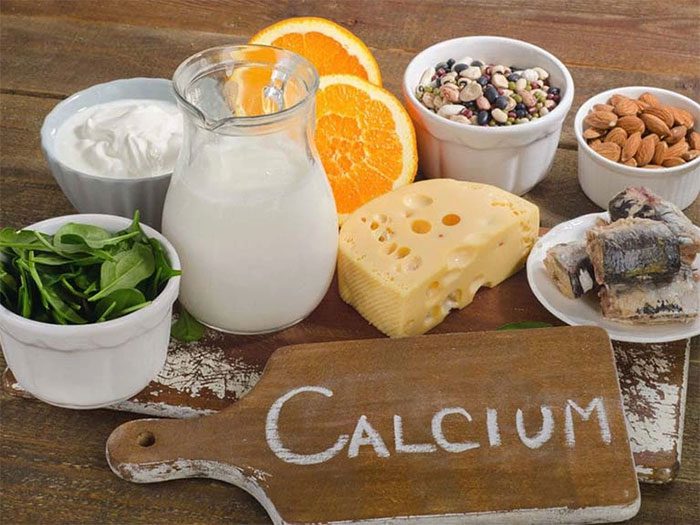The diet is closely related to the formation or prevention of urinary stones, helping to reduce the recurrence rate after surgery to as low as 10% after five years.
Urinary stones include types such as kidney stones, ureteral stones, and bladder stones. They can form when substances like calcium, oxalate, phosphate, and urate become concentrated in the urine.
Urinary stones are quite common in our country, affecting 5-10% of the population. The recurrence rate of urinary stones without follow-up treatment after one year is 10%, after 3-5 years it is 30%, after five years it is 50%, and after ten years it is 80-90%.
There are five types of urinary stones:
- Calcium oxalate stones: Formed due to excessive secretion of calcium and oxalate.
- Calcium phosphate stones: Formed when there is a high concentration of calcium and alkaline substances in the urine, meaning the urine has a high pH level.
- Uric acid stones: Formed due to acid in the urine. A diet high in purines can increase uric acid levels in the urine. If uric acid becomes concentrated in the urine, it combines with calcium to form urinary stones.
- Struvite stones: Struvite stones are caused by kidney infections. Urinary secretion can help prevent struvite stones.
- Cystine stones: Cystine stones are due to a genetic disorder. This disorder causes cystine to leak from the kidneys into the urine, forming crystals that lead to stone formation.
Why is it important to understand each type of urinary stone?
The first step in preventing urinary stones is to know the causes of their formation. This information helps healthcare providers give guidance and recommendations for dietary changes to prevent urinary stones.

The first step in preventing urinary stones is to know the causes of their formation. (Image: Bannerhealth).
For example, limiting oxalate in the diet can help prevent calcium oxalate stones but will not help in preventing uric acid stones.
Epidemiological studies show that urinary stone formation is related to many factors: sexual activity, age, geographical environment, dietary habits, nutritional conditions, and other factors.
The disease is often caused by a combination of many factors such as: insufficient water intake, improper calcium supplementation, metabolic disorders, genetics… Among these factors, diet plays a significant role in the formation or prevention of urinary stones.
Accurate analysis of stone composition provides important clues to further explore the causes of stones. For patients after stone surgery, a proper diet can reduce the recurrence rate of the disease to as low as 10% after five years.
Diet Depending on the Type of Urinary Stones
Calcium oxalate and calcium phosphate stones
Calcium from food will not increase the risk of calcium oxalate stones. Calcium in the digestive system binds with oxalate from food and prevents it from entering the bloodstream and the urinary system, where stones can form. Individuals with calcium oxalate stones should aim for 800 mg of calcium in their daily diet, not only to prevent urinary stones but also to benefit bone health.
A cup of low-fat milk contains about 300 mg of calcium. Other dairy products such as yogurt also have high calcium content. We should include calcium-rich foods in our diet. Taking calcium supplements can increase the risk of calcium oxalate stones if they are not taken with food.
Therefore, you should obtain sufficient calcium from food or take calcium supplements in conjunction with food.
Additionally, individuals should reduce their intake of sodium and protein (meat, eggs, fish). You should also avoid foods high in oxalate such as spinach, rhubarb, nuts, and wheat bran. These foods can increase oxalate levels in the urine, where they combine with calcium to form stones.

Individuals with calcium oxalate stones should aim for 800 mg of calcium in their daily diet. (Image: Food2mins).
Uric acid stones
To prevent the formation of uric acid stones, you should limit animal protein.
Additionally, we should reduce sodium-containing foods in our diet to lower calcium levels in the urine. Sodium, which is commonly found in salt, causes the kidneys to excrete more calcium in the urine. High concentrations of calcium, oxalate, and phosphorus in the urine will lead to stone formation.
You should also avoid eating large amounts of meat and animal protein found in eggs, fish, shrimp, and crab, which contain purines. This substance can increase uric acid levels in the urine.
Water Intake
Drinking enough water daily is the best way to prevent most types of urinary stones. The amount of water each person needs to drink depends on the weather and their level of physical activity. Individuals engaged in manual labor or exercising in hot weather need to drink more water to compensate for fluid loss through sweating.
Depending on daily urine output, we adjust our water intake. If urine output is too low, we need to drink more water. Experts recommend that each person should drink between 2 to 3 liters of water each day.
Individuals with cystine stones need to drink even more. Water is the best option, but other beverages such as fruit juices can also help prevent urinary stones.
Some studies indicate that fruit juices like lemon and orange can help prevent urinary stones as they contain citric acid. This acid prevents crystallization during stone formation.
| This article is provided by Dr. Nguyen Dinh Duc, Head of the Urology Department, Ninh Binh General Hospital. |



















































